Unfortunately, with the global pandemic there has been a rise in fraud, linked to COVID. The Financial Conduct Authority has issued a statement on what to look out for. We have summarised this for you below and would ask you to never give out your full pin code or security information to anyone . We, or any other bank, would never ask you to transfer money to a ‘safe account’.
What tactics to look out for
- To exploit your short-term financial concerns, scammers may ask you to hand over an upfront fee – usually between £25 and £450 – when applying for a loan or credit that you never get. This is known as loan fee fraud or advance fee fraud.
- ‘Good cause’ scams. This is where scammers seek investment for good causes such as the production of sanitiser, personal protection equipment (PPE) or new drugs to treat the virus. They use the promise of high returns to entice you.
- Using the uncertainty around stockmarkets, scammers may advise you to invest or transfer existing investments into high return (and high risk) investments.
- Clone firms – firms must be authorised by us to sell, promote, or advise on the sale of insurance products. To appear genuine, some scammers will claim to represent authorised firms. In particular, be aware of life insurance firms that may be cloned.
- Scammers may contact you claiming to be from a claims management company (CMC), insurance company or your credit card provider. They may say they can help you recover losses by submitting a claim, for the cost of a holiday or event such as a wedding cancelled due to the virus. They will ask you to send them money or your bank details.
- Cold calls, emails, texts or WhatsApp messages may claim that your bank is in trouble due to the coronavirus pandemic. They may push you to transfer your money to a new bank with different banking details.
How to protect yourself
- Use the Financial Services Register and Warning List to check who you are dealing with.
- Reject offers that come out of the blue.
- Beware of adverts on social media channels and paid for/sponsored adverts online.
- Don’t click links or open emails from senders you don’t already know.
- Avoid being rushed or pressured into making a decision.
- If a firm calls you unexpectedly, use the contact details on the Register to check you’re dealing with the genuine firm.
- Don’t give out personal details (bank details, address, existing insurance/pensions/investment details).
To read the full Financial Conduct Authority statement you can click here.
Action Fraud also have some really useful information on how to protect yourself against fraud.








